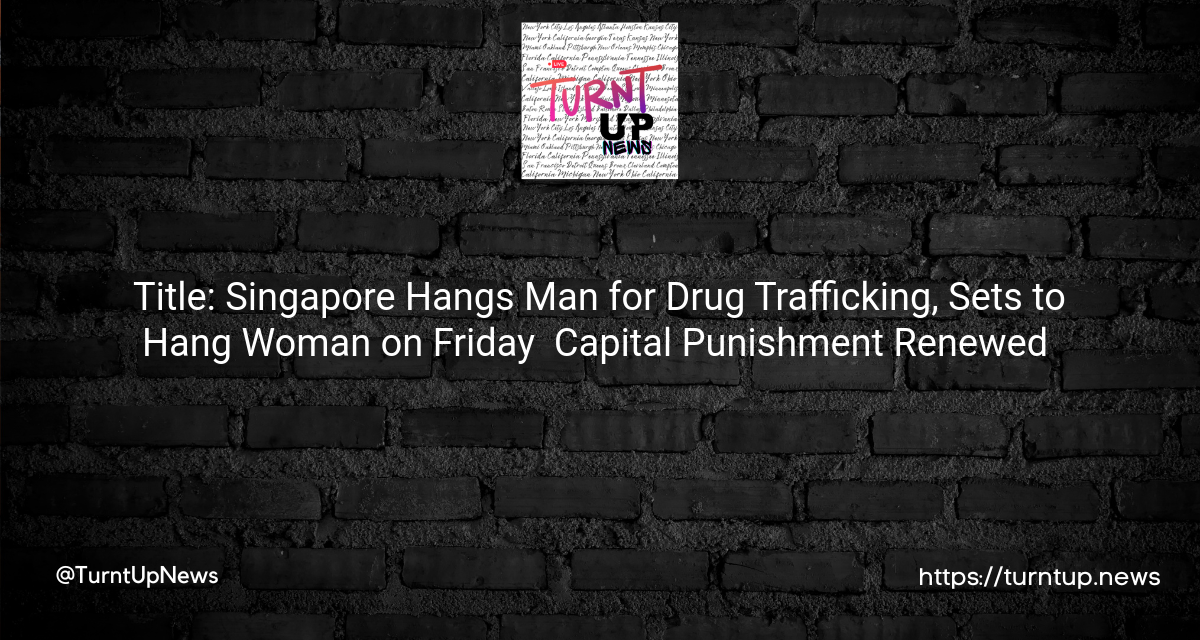🌟 Singapore Hangs Man for Drug Trafficking, Sets to Hang Woman on Friday — Capital Punishment Renewed 🌟
TL;DR: Singapore recently executed a man for drug trafficking, and shockingly, they are gearing up to hang a woman on Friday, marking the first such execution in 19 years. The rekindling of capital punishment has sparked widespread controversy, leading to renewed calls for its cessation. Activists and human rights organizations are voicing their concerns about the country’s approach to drug policies, while authorities maintain their stance, citing due process and the need to combat drug demand and supply. Is this the right path for a modern society to take? Let’s explore the contentious issue and discuss the implications.
📰 Singapore’s Renewed Capital Punishment Sparks Heated Debate
KUALA LUMPUR, Malaysia — In a shocking turn of events, Singapore has carried out the execution of Mohammed Aziz Hussain, a 56-year-old man, for drug trafficking. Adding fuel to the fire, the city-state is poised to hang Saridewi Djamani, a 45-year-old Singaporean woman, on Friday, marking the first female execution in 19 years.
According to activist Kirsten Han of the Transformative Justice Collective, Hussain was sentenced to death in 2018 for trafficking approximately 50 grams (1.75 ounces) of heroin. Similarly, Djamani was convicted and sentenced in 2018 for trafficking about 30 grams (1.05 ounces) of heroin. The impending execution of Djamani has raised concerns, considering the last known execution of a woman in Singapore was that of 36-year-old hairdresser Yen May Woen in 2004, also for drug trafficking.
Human rights groups and organizations worldwide have rallied to halt these executions, calling for Singaporean authorities to reconsider their approach to capital punishment. Adilur Rahman Khan, secretary-general of the International Federation of Human Rights, minced no words, stating, “Singaporean authorities must immediately stop these blatant violations of the right to life in their obsessive enforcement of misguided drug policies.”
But Singapore remains resolute in its stance, citing due process of law and defending capital punishment as a crucial deterrent to drug-related offenses. However, the evidence suggests otherwise, with increasing voices questioning the effectiveness of the death penalty as a deterrent. Even British business mogul Richard Branson and the United Nations have joined the chorus in urging Singapore to rethink its position on executions for drug offenses.
A joint statement from the Transformative Justice Collective, Amnesty International, and seven other groups highlighted an acknowledgment by Law Minister K. Shanmugam in a 2022 interview. Shanmugam reportedly recognized that Singapore’s harsh drug policies have failed to apprehend the so-called drug kingpins, instead disproportionately affecting low-level traffickers and couriers, often from vulnerable and marginalized backgrounds.
Furthermore, Singapore’s rigid stance on capital punishment is seemingly out of step with the global trend. Neighboring Thailand has legalized cannabis, and Malaysia has recently abolished the mandatory death penalty for serious crimes. As more countries move away from capital punishment, Singapore stands as an outlier in its unwavering approach.
With the impending execution of Saridewi Djamani, the number of people executed for drug offenses since March 2022 will reach 15—an average of one execution every month. This statistic has reignited the debate on the effectiveness and humanity of Singapore’s capital drug laws.
The question that lingers is whether Singapore’s relentless pursuit of capital punishment truly aligns with the values of a modern, compassionate society. Shouldn’t we explore more effective and humane approaches to address drug trafficking rather than resorting to executions? The world watches closely as this controversial issue unfolds. What’s your take on it?
🔍 Original News Story URL: ABC News 🔍





